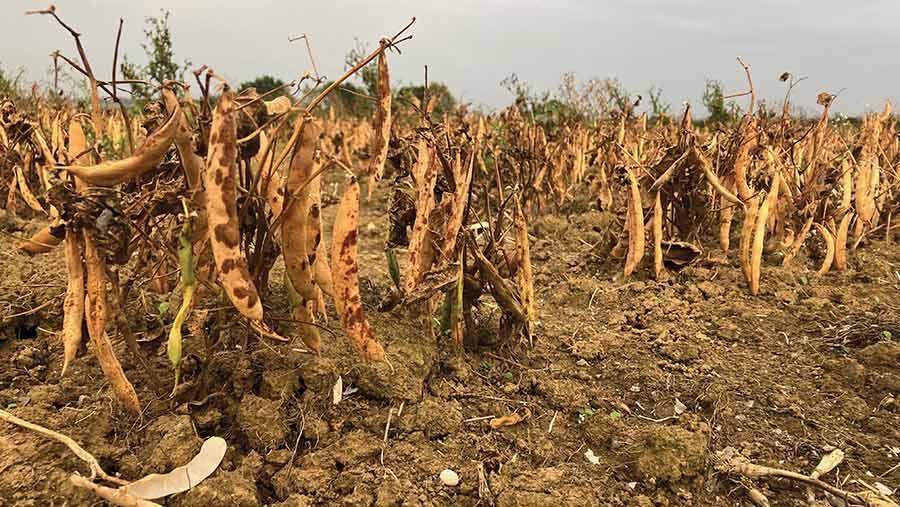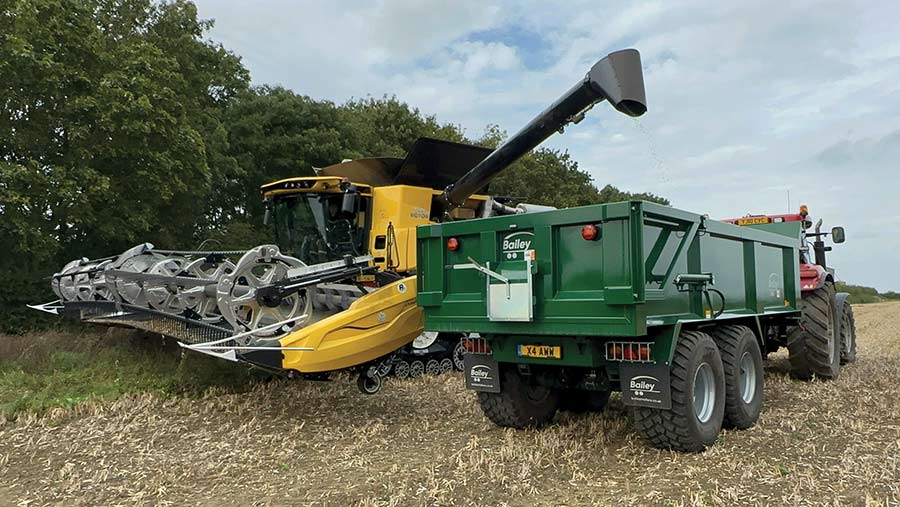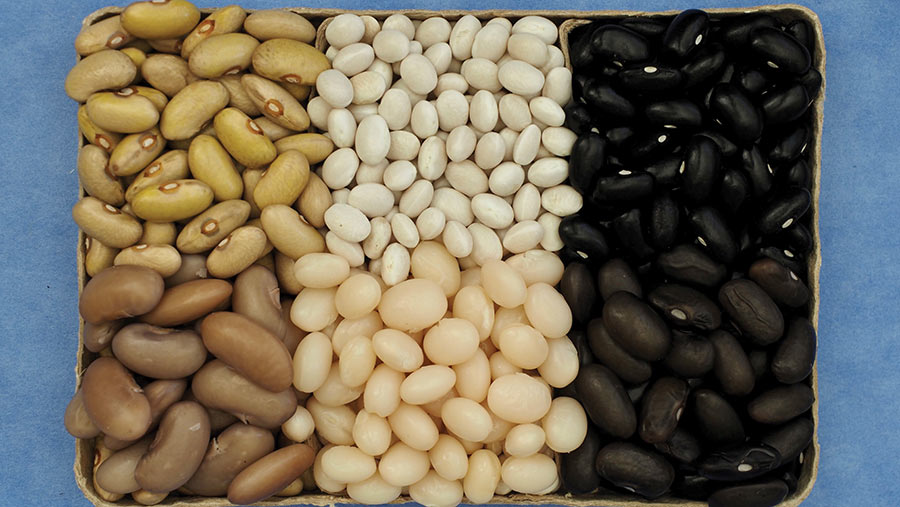Video: Grower completes world’s first Capulet bean harvest
 Capulet spring beans © MAG/Emma Gillbard
Capulet spring beans © MAG/Emma Gillbard Lincolnshire grower Andrew Ward has successfully harvested the world’s first field-scale trial of Capulet beans destined for the baked bean market.
Thanks to the development of a UK-specific common dry bean variety, this could mark the beginning of a new pulse market for UK farmers, with the aim to cut food imports and increase home-grown protein.
“To grow the world’s first Capulet bean crop in conjunction with the University of Warwick and agronomy group Agrii is hugely gratifying and a really proud moment,” says Andrew.
See also: Organic grower tackles weeds with cereal/legume intercrop mix
In the video below, Andrew explains the significance of the trial and talks through the kit used to successfully harvest the crop.
According to the Business Insider website, more than 2.5m tins of baked beans are sold each day in the UK, in a market that is totally reliant on imports, mainly from Canada, America and China.
“Every tin of those beans is imported. This is clearly wrong when we consume so many in this country. That’s why we need to produce more home-grown food,” says Andrew.
The beans were harvested on 28 September with yields just shy of 2t/ha at Glebe Farm, near Ledenham. A clean, bright sample of beans with no staining made them a perfect fit for the baked bean market.

Andrew Ward’s bean harvest © MAG/Emma Gillbard
Low-standing crop
However, growing the crop did not come without its challenges.
The beans naturally grow very low to the ground, averaging 15-18cm in height. Because of this, a specialist Macdon flex-draper header was used to accurately cut the crop.
“The Macdon header is completely different from a conventional header as it floats and flexes by following the ground’s contours.
“It was really impressive how easily it picked up the crop, with minimal beans left behind, considering the soil conditions.
“Thanks goes to our local New Holland dealer Russels for supplying the combine and Macdon header,” says Andrew.
Crops were planted during mid-May, but with significant rainfall after drilling, Andrew was unable to roll one of the field trial plots, leaving clumps of soil in the seed-bed.
In this plot the soil clumps were taller than the beans themselves, which unfortunately rendered the crop unharvestable.
“A bean contaminated with soil would stain the sample, making it unsuitable for human consumption,” says Andrew.
Next steps
The harvested Capulet beans were sent to the Princes canning factory near Spalding to be processed into baked beans.
A proportion of the crop will be kept for seed and multiplied as there is currently limited seed availability.
Two other common dry bean varieties developed by the University of Warwick have also been trialled at Andrew’s farm.
They are Olivia and Godiva, which are both destined for the home-cooking market for use in curries and casseroles.
Home-produced baked beans commercial reality
Dr Eric Holub, crop scientist at the University of Warwick, explains the development of new bean variety Capulet makes producing home-grown baked beans in the UK a commercial reality.
“The early maturity traits allow the crop to complete a full growing season from May to September in the UK, as demonstrated by Andrew Ward, who successfully harvested a crop at the end of September.”
Previous varieties of the common dry bean – also known as the haricot bean – grown for baked beans were bred to suit the North American climate.

Godiva, Capulet and Olivia common dry beans © Eric Holub
The University of Warwick has been developing a UK-specific common dry bean variety for the baked bean market over the past 12 years.
Eric also explains that the crop is relatively low input, with just one pre-emergence herbicide applied and no fungicide or insecticides needed.
Due to the success of the trial, the project is hoping to scale up production in the coming years.
“By 2026, we hope to roll out expansion across the UK, with the creation of grower cluster groups which could share machinery and equipment,” concludes Eric.

